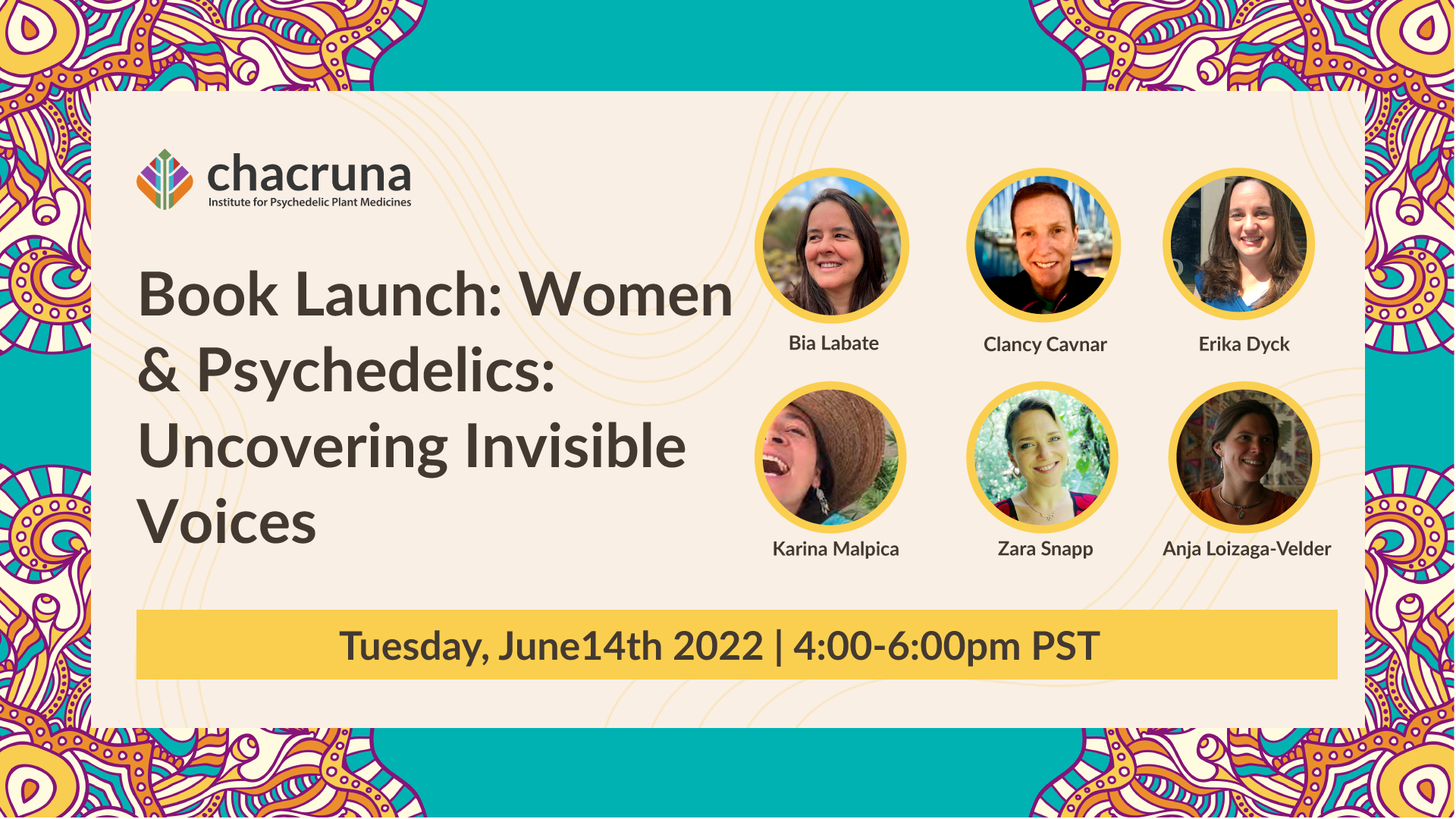- Psychedelics and Attachment: Fundamentals, Implications, and New Frontiers - May 16, 2025
- Development Outreach Internship (OPEN) - May 6, 2025
- Social Media and Content Production Internship (OPEN) - May 6, 2025
Tuesday, June 14th, 2022
4:00-6:00pm PST
6:00-8:00pm CDT
Centro Cultural México Contemporáneo
Leandro Valle 20, Centro Histórico de la Ciudad de México, CDMX.
Mexico City
REGISTER TO THE WAITING LIST FOR THE IN PERSON EVENT HERE
Explore Women & Psychedelics: Uncovering Invisible Voices Book.
Mexico CityThe Chacruna Institute and Chacruna Latinoamerica are pleased to announce the launch of a new anthology of essential texts for all those interested in learning more about the rarely explored role that women have played in psychedelic history–Women & Psychedelics: Uncovering Invisible Voices.
The publication of this work in Mexico will be a co-edition between Chacruna Institute and the Mexican publishing house Lunaria Ediciones, who through their title series Etnosfera, has spent recent years publishing works focused on ancestral knowledge, different states of consciousness, and the pharmakon of culture.
The anthologies published by Chacruna have unquestionably been characterized by bringing to the table important cultural discussions around psychedelics and sacred plants, with themes that are not normally addressed by mainstream narratives in this field. In that sense, we can guarantee that this new release will be no exception.
That is why we want to take advantage of this important moment to invite the public in Mexico City and surrounding areas to the editorial presentation of this work. The book launch will be held on the evening of June 14th, from 6 to 8 pm, at the Centro Cultural del México Contemporáneo (located in the heart of downtown Mexico City). During this event, we will have the presence of Bia Labate, Clancy Cavnar and Erika Dyck; as well as several members of the Chacruna Institute.
At the event, we will discuss issues discussed in the anthology through a small panel discussion, which will include both women who are directly involved in the publication, as well as others who have played a prominent role in this field, either in research, dissemination or activism around these issues. Afterwards, we will also provide a space for socializing among participants and attendees, to whom we will be happy to offer delicious snacks and drinks for refreshment. Additionally, those who wish to purchase copies of the book will be able to do so on the spot.
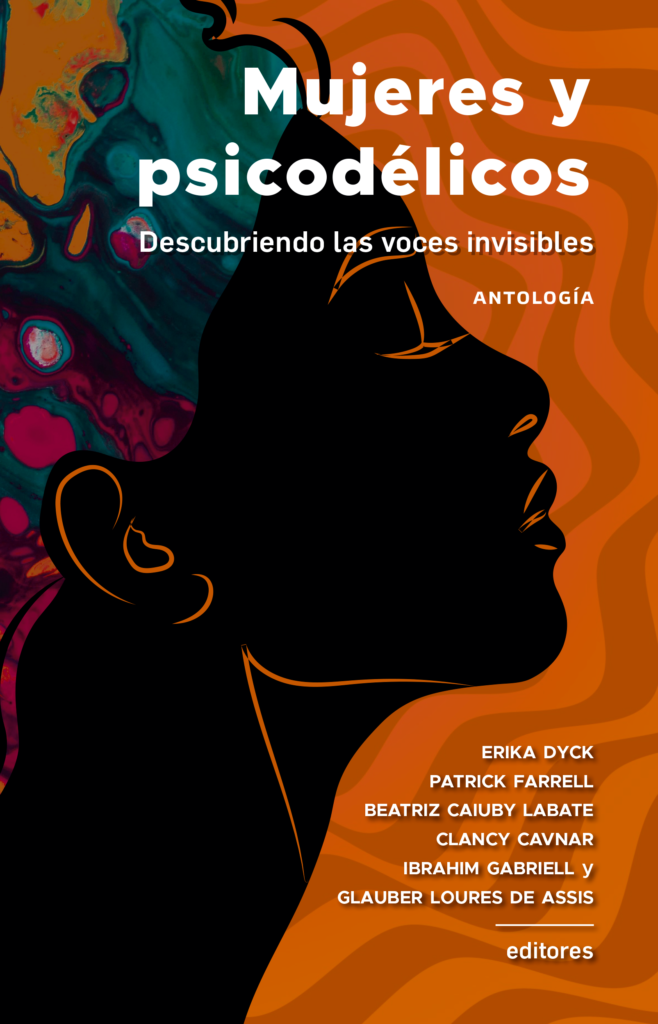
This collection of short essays examines the place of women in the history of psychedelics. While some of the subjects are clearly pioneers in their own right, the authors in this collection go beyond merely adding women to the past to explore some of the significant ways that women have contributed to psychedelic knowledge. Blending historical and anthropological approaches and a series of interviews, this collection taps into women’s networks around the world and throughout the 20th century to reveal some of the sophisticated and creative ways that women have influenced our understanding of psychedelics, and how they continue to protect these stories as we face a psychedelic future. Our collection intentionally moves beyond an American set of stories, teasing out networks in Latin America. This collection brings together authors from the Chacruna Institute and Chacruna Latinamérica to engage readers in conversations that move across time and place throughout the Americas. Our collection is the first of its kind in balancing non-English contributions exploring contexts outside the United States. Translated texts reveal different cultural contexts in which women have contributed to this enduring history.
Dyck, E., Farrell, P., Labate, B. C., Cavnar, C., Gabriell, I. y Assis, G.L. (eds.). (2022). Mujeres y psicodélicos: Descubriendo las voces invisibles. Instituto Chacruna/Lunaria Ediciones.
An English version of Women and Psychedelics will be published in 2023 by Synergetic Press.
Program (CDT)
6:00 pm – Opening
6:05 pm – Welcome by Bia Labate, Erika Dyck and Clancy Cavnar
6:15 pm – Panel with Anja Loizaga-Velder, Zara Snapp, Karina Malpica, Nidia Olvera
7:15pm – 8:00 pm Socialization
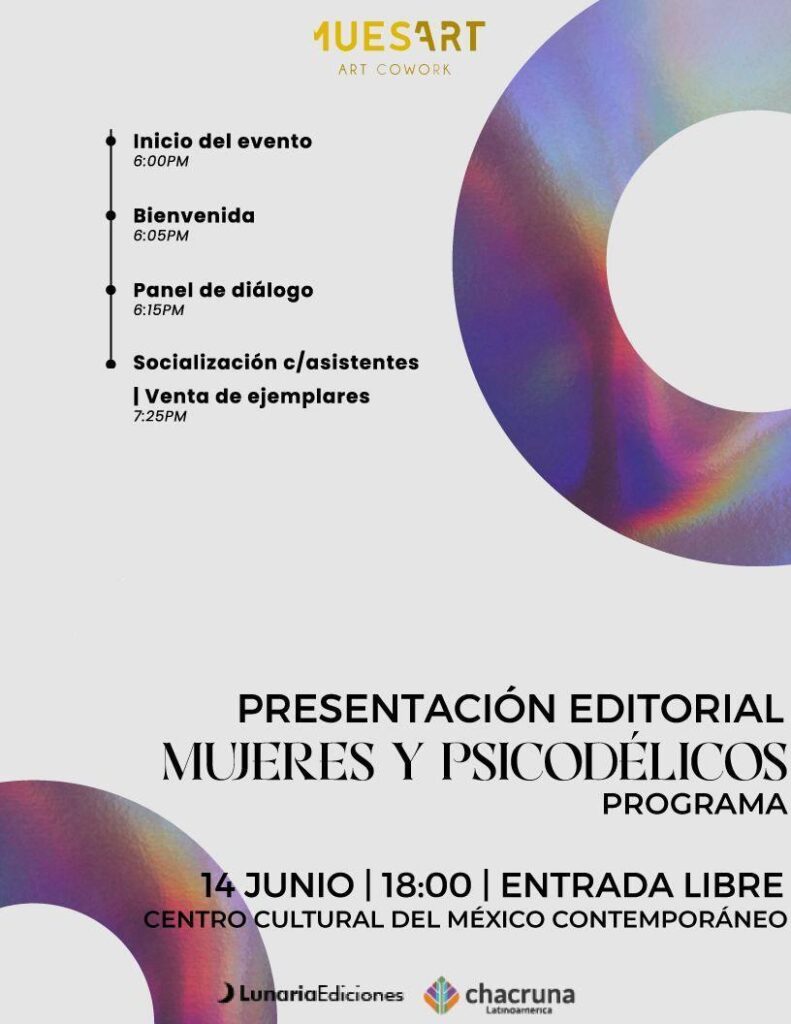
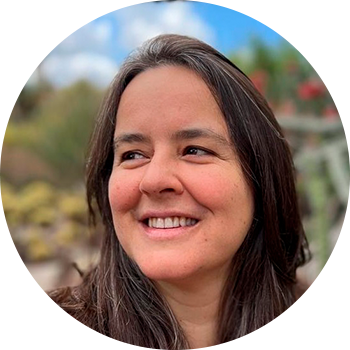
Dr. Beatriz Caiuby Labate (Bia Labate) is a queer Brazilian anthropologist based in San Francisco. She has a Ph.D. in social anthropology from the State University of Campinas (UNICAMP), Brazil. Her main areas of interest are the study of plant medicines, drug policy, shamanism, ritual, religion, and social justice. She is Executive Director of the Chacruna Institute for Psychedelic Plant Medicines (https://chacruna.net, https://chacruna-iri.org, https://chacruna-la.org) and serves as Public Education and Culture Specialist at the Multidisciplinary Association for Psychedelic Studies (MAPS). She is also Adjunct Faculty at the East-West Psychology Program at the California Institute of Integral Studies (CIIS) and Visiting Scholar at Naropa University’s Center for Psychedelic Studies. Additionally, she member of the Oregon Psilocybin Advisory Board’s Research Subcommittee, and Advisor at the Synthesis Institute. Dr. Labate is a co-founder of the Interdisciplinary Group for Psychoactive Studies (NEIP) in Brazil and editor of its site since. She is author, co-author, and co-editor of twenty-four books, two special-edition journals, and several peer-reviewed articles (https://bialabate.net).
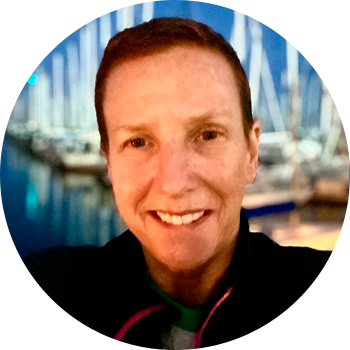
Clancy Cavnar has a doctorate in clinical psychology (Psy.D.) from John F. Kennedy University in Pleasant Hill, CA. She currently works in private practice in San Francisco, and is Co-Founder and a member of the Board of Directors of the Chacruna Institute for Psychedelic Plant Medicines. She is also a research associate of the Interdisciplinary Group for Psychoactive Studies (NEIP). She combines an eclectic array of interests and activities as clinical psychologist, artist, and researcher. She has a master of fine arts in painting from the San Francisco Art Institute, a master’s in counseling from San Francisco State University, and she completed the Certificate in Psychedelic-Assisted Therapy program at the California Institute of Integral Studies (CIIS). She is author and co-author of articles in several peer-reviewed journals and co-editor, with Beatriz Caiuby Labate, of ten books. For more information see: http://www.drclancycavnar.com

Erika Dyck is a Professor and a Canada Research Chair in the History of Health & Social Justice. She is the author of several books, including: Psychedelic Psychiatry: LSD from Clinic to Campus (Johns Hopkins, 2008; University of Manitoba Press, 2011); Facing Eugenics: Reproduction, Sterilization and the Politics of Choice (University of Toronto, 2013), which was shortlisted for the Governor General’s award for Canadian non-fiction; Managing Madness: the Weyburn Mental Hospital and the Transformation of Psychiatric Care in Canada (University of Manitoba Press, 2017), which won the Canadian Historical Association Prize for best book in Prairie History; and with Maureen Lux, Challenging Choices: Canada’s Population control in the 1970s (McGill-Queens University Press, 2020). She is also the co-editor of Psychedelic Prophets: The Letters of Aldous Huxley and Humphry Osmond (2018); and A Culture’s Catalyst: Historical Encounters with Peyote (2016). Erika is the co-editor of the Canadian Bulletin for Medical History/Bulletin canadien d’histoire de la medicine and the co-editor of a new book series on the global history of alcohol and drugs, called Intoxicating Histories. Erika is member of Chacruna’s Board of Directors and Associate Director of Chacruna in Canada.
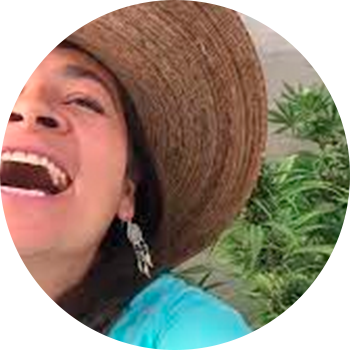
Karina Malpica has a degree in Political Science from UNAM and in Psychology from CUDEC, where she also studied a Master’s Degree in Systems Psychology. She has a degree in Public Policies on Drugs and Human Rights (CIDE). Her professional interest has focused on training and disseminating information about non-ordinary states of consciousness that are reached during sleep, meditation or the intake of plants and psychoactive substances. In 2002 she founded MindSurf, one of the most visited internet portals in Latin America about these issues.
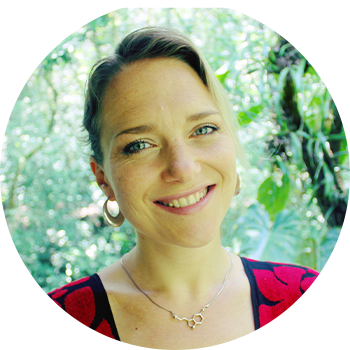
Zara Snapp has a masters in public policy from Harvard University and a political science degree from the University of Colorado. She is the co-founder of Instituto RIA, a Mexican organization which undertakes drug policy advocacy and research. Zara has actively participated in the legislative process of regulating cannabis in Mexico and is the international advisor for Acción Técnica Social in Colombia. From 2014-2017, she formed part of the Secretariat of the Global Commission on Drugs. Zara presents and writes extensively on innovations in drug policy, particularly on the legal regulation of all psychoactive substances with a social justice framework and from a “producing” country perspective. Zara is the author of the Diccionario de Drogas, published in 2015.
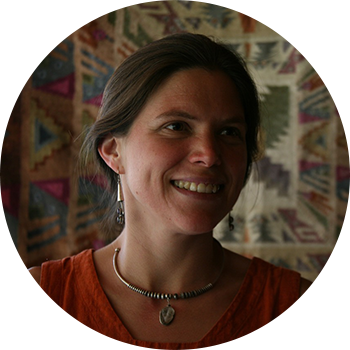
Anja Loizaga-Velder is a German-Mexican clinical psychologist and psychotherapist with humanistic orientation. She earned a doctoral degree in Medical Psychology from Heidelberg University and has published several research articles and book chapters that explore the therapeutic potential of ayahuasca and other psychedelics for the treatment of mental health challenges. She is founding member and director of research and clinical services at the Nierika Institute for Intercultural Medicine, in Mexico, a NGO dedicated to the preservation of indigenous traditions with sacred plant medicines and their research around therapeutic applications for mental health. Anja also is adjunct profesor and researcher in Humanities in Health at the Medical School at the National Autonomous University of Mexico, where she works towards implementing clinical research into evaluating the therapeutic efficacy of psychedelics in intercultural therapeutic settings.
Sponsor
Take a minute to browse our stock:
Did you enjoy reading this article?
Please support Chacruna's work by donating to us. We are an independent organization and we offer free education and advocacy for psychedelic plant medicines. We are a team of dedicated volunteers!
Can you help Chacruna advance cultural understanding around these substances?


